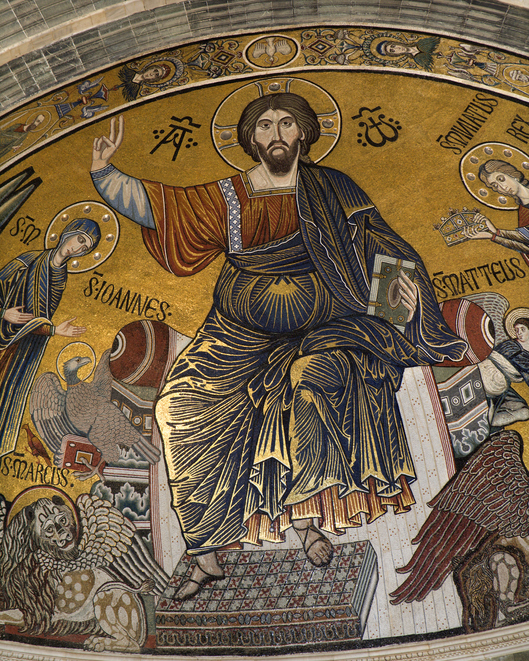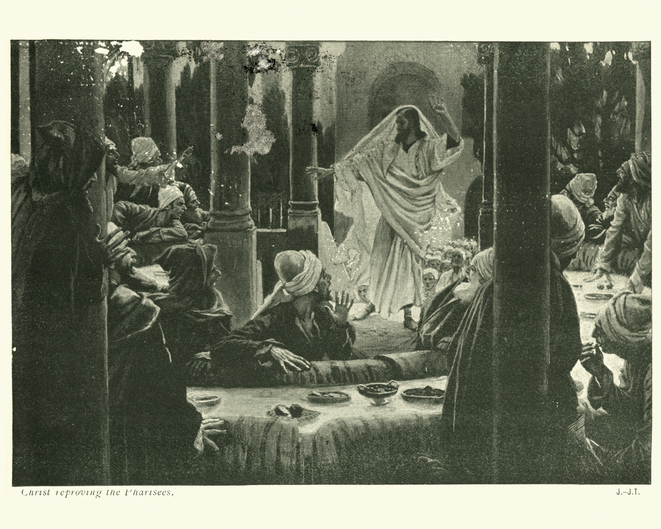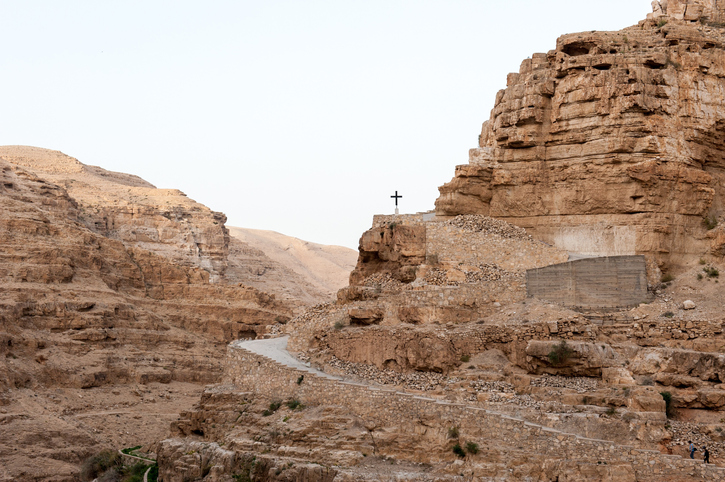Every time we pray the Our Father, we make the petition, “Thy Kingdom come.” In just a few weeks, we will celebrate the Solemnity of Our Lord Jesus Christ, King of the Universe. We know that Jesus is King, but when will His Kingdom finally be established?
In today’s Gospel, this is the question the Pharisees asked. The Jews were living in expectation that, after generations under the yoke of powers that opposed them and their beliefs, the Messiah would come and free them – politically. They awaited the freedom to worship without fear, and to live in the joyous prosperity of the Kingdom promised them. And if Jesus was some kind of wise rabbi stirring trouble, he surely should have some kind of timeline.
Jesus says something that must have surprised most of those present: “The coming of the Kingdom of God cannot be observed, and no one will announce, ‘Look, here it is….’. Behold, the Kingdom of God is among you.” Wait… It can’t be seen or announced? It’s already here? What?
Everyone on earth knows that conquerors are obvious, and that their conquering is observable, and that the establishment of a Kingdom is announced with great fanfare. What kind of Kingdom is Jesus talking about if it is not visible or proclaimed? What kind of Kingdom is already present but invisible?
The Kingdom, as we know, is Jesus Himself, present among His people. One of the ways He made this clear was to be crowned (with thorns), clothed in royal garments and handed a reed for a scepter, and finally to take His place on the throne (of the Cross). Rather than taking everything to Himself with violence and power, Jesus submitted Himself completely to the false powers of this world, submitted Himself to their violence, pouring Himself out utterly for love of each of us. Unlike worldly kings, this King conquers one heart at a time, not by subduing it with violence, but by submitting Himself to it in love.
And He remains present with us in our prayer and our love and, in a sacramental way, in the Eucharist. In Eucharistic Communion, the King of the Universe draws all of us together, and all of us to Himself, in the love of His own heart. The King of Love offers Himself completely to us in love, offers all that has been given to Him by the Father to us, in exchange for our offering ourselves to Him in love.
So the Kingdom is already among us wherever Christ is present, whenever we acknowledge Christ as King and ask Him to reign in our hearts, our homes, and our lives. It cannot be seen because it has no borders. It cannot be announced because it will not be completely established until the end of time. It began with the presence of Christ on this earth in Bethlehem, and it continues with the presence of Christ on this earth in our hearts and our tabernacles.

Kathryn Mulderink, MA, is married to Robert, Station Manager for Holy Family Radio. Together they have seven children (including newly ordained Father Rob and seminarian Luke ;-), and two grandchildren. She is a Secular Discalced Carmelite and has published five books and many articles. Over the last 25 years, she has worked as a teacher, headmistress, catechist, Pastoral Associate, and DRE. Currently, she serves the Church as a writer and voice talent for Catholic Radio, by publishing and speaking, and by collaborating with the diocesan Office of Catechesis, various parishes, and other ministries to lead others to encounter Christ and engage their faith. Her website is https://www.kathryntherese.com/.











